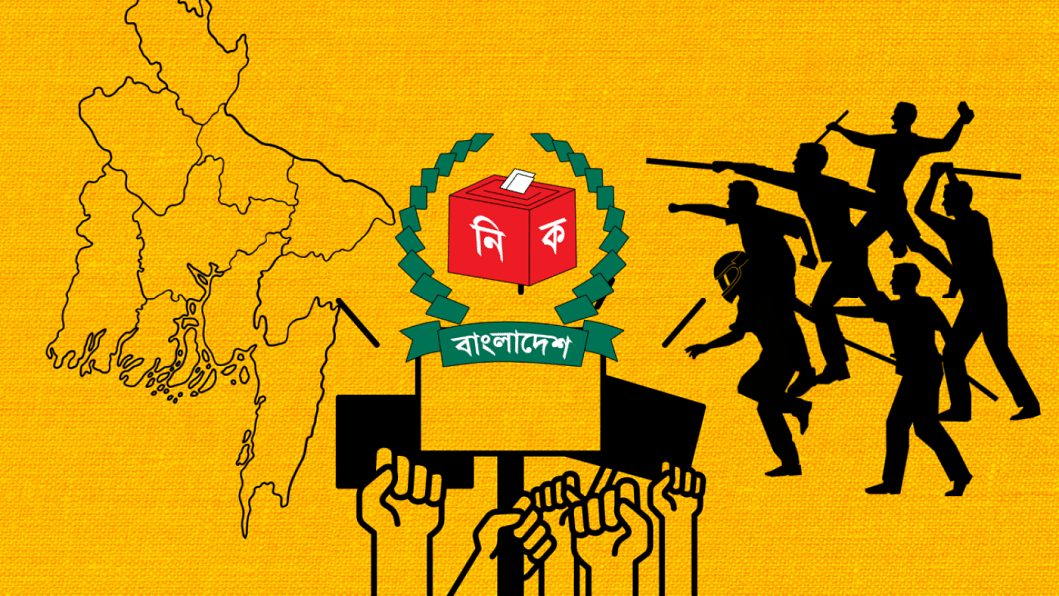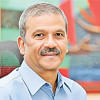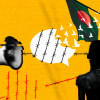Why fundamental reforms should precede elections

I remember becoming a voter in 1994. I still do not know what it feels like to vote—I have not voted yet. Every time I thought of voting, I discovered that I had to pick out the worse from the worst. Whoever would win, people would lose. I found voting unnecessary, even criminal. If that sounds like the logic of a lunatic, look around. Take stock of the elections we had. Didn't we have to vote for those grifting charlatans, who almost religiously basked in crime and corruption? An election beckons us yet again. While the interim government led by Prof Yunus reiterates that the election is planned from December 2025 to June 2026, some political yahoos remind us repeatedly that the sooner the election, the faster the slide into democracy. If that sounds a little hooey to you, you are not alone!
While a functional democracy presupposes transparent and timely elections, the correlation between democracy and elections is often incidental. Think, for example, of Hungary. Christopher Rufo, a writer and activist from the US, claims in his pitch, "Orbán's War," that Hungary is the most controversial nation on earth for many reasons; for one, it represents the death of democracy. It holds free and fair elections regularly. No one else besides Viktor Orbán, the prime minister of the country, however, has been winning elections since 2010. Since he resumed office for the second time (his first term lasted from 1998 to 2002), he reformed the constitution and the electoral system so critically that they advanced his political goals permanently and illegally. Gerrymandering, muzzled media, and outmanoeuvred political opponents have contributed further to skewing elections in his favour. Elections alone do not establish democracy. Elections under certain conditions do. Considering this, Bangladesh doesn't seem ready yet to leap into democracy through an election.
A shift from dictatorship to democracy has never been linear and instant. A dictatorship is a devil's workshop. It begins with transgressions. It ends with devastation. Bangladesh is apparently wrecked now, because it had to weather the brutal dictatorship of Sheikh Hasina for about 16 years until she capitulated to a student-led movement on August 5, 2024. While Hasina's departure is a giant leap towards democracy, sceptics would remind us that she left behind a shattered constitution, a dysfunctional election commission, a broken police department, and a pet bureaucracy. These critical instruments of state operation can't be overhauled overnight. An executive fiat doesn't rejig these instruments. It requires policy formulation, political consensus, logistical preparedness, and even civic engagement. Professor Yunus's government has been working frantically, as we all know, to fulfil all these requirements to hold an exemplary election within the timeframe already declared. In a democratic country, any party can ask for an election at any time. An election, however, is apparently not a partisan demand. It's essentially a public entitlement. Scheduling an election as such warrants caution.
A case in point is the Philippines. Adrienne LaFrance claims in her pitch, "A Ticking Clock on American Freedom," in The Atlantic that democracy is still extremely fragile in the Philippines following the ouster of Rodrigo Duterte in 2022. Duterte was voted in and out of office democratically, but during and following his tenure (from 2016 to 2022), democracy diminished and then struggled to flourish. He cracked down on his political rivals, gagged the press, and killed tens of thousands of civilians, as human-rights groups claim. The rule of law was unknown to him. LaFrance claims that democratic institutions crumbled in the Philippines in six months under Duterte. Once people lose their freedoms, it can take a generation or more to claw them back if they are lucky, LaFrance claims. That's the reason why Duterte's successor, Bongbong Marcos, has been struggling to steer the country back into democracy. A robust democracy never emerges out of broken institutions. Democracy needs institutional guardrails and administrative custodians. Bangladesh falls flat on both of these fronts, thanks to Sheikh Hasina. Under these circumstances, whoever asks for an early election hardly cares about what democracy is and does.
Democracy is not a political system that only stipulates who is going to be ruled by whom. Ideally, in a democracy, no one rules anyone. It's, instead, a system that ensures checks and balances between different arms of a government, which revolves around such fundaments as equity, justice, freedom, and engagement. These are areas of infinite improvement. There's no such thing as the best democracy, because the so-called best democracy can be better still. Democracy is hardly about transferring power through an election. Only when people are criminally innocent about democratic values do they believe that elections are the only gateway to democracy. Adolf Hitler was the democratically elected chancellor of the Weimer Republic (modern-day Germany from 1918 to 1933), but he systematically dismantled his country's democratic structures and processes within 53 days of his tenure, as Timothy Ryback claims in his pitch, "How Hitler Dismantled a Democracy in 53 Days," in The Atlantic.
An election is no longer a possibility in Bangladesh. It's a certainty, unless it has to be delayed under extraordinary circumstances. That worries some people. Are we getting ready again to repeat the past to destroy the future? In July-August 2024, we didn't have a picnic to celebrate our political success. We suffered a carnage due to our political failure. One big party went wild for about 16 years. Another big party failed to resist them. Unfortunately, Bangladesh's politics is significantly defined by the see-saw show between these two parties. They are qualitatively similar. They defend dynasties. They deify specific icons and ideologies. What they do as rituals is similar, too. Lie. Gripe. Gloat. Repeat! And all they want is power, because money grows within the proximity of power. We shouldn't tut-tut over something so obvious––politicians are apparently money soldiers. Following Hasina's departure, all they need is an election, which will establish their proprietary right over the country. Boom! The country is back to square one. James Novak in Bangladesh: Reflections on Water mentioned the following quote attributed to Hussain M Ershad, as he was reflecting on ruling Bangladesh, "You know how it will end; you just never know when." That's a spoiler alert to politicians, who sound gung-ho about the election.
Alerting the breed of politicians we have in Bangladesh is akin to beating a drum to the deaf. They don't hear, because they don't care. They toe their party line to centralise power. And when they prevail, they create an environment where committing a crime is no crime; calling a crime a crime is. They make questioning impossible. They make certain killings sacred. They bend and break the constitution. That was Hasina's playbook. Some of the outlandish statements by some party-people on reform, the interim government, and the election suggest that whoever is going to succeed Hasina following the election will rule the country her way. That's no longer an option. We need fundamental reforms in the legislative, executive, and judiciary for Bangladesh to emerge anew.
The constitution in particular must be amended so as not to grant the prime minister absolute power sine die. The tenure of the prime minister can be restricted to two terms spanning over approximately eight years, when the prime minister is not "the pivot of the whole system of government," as political scientist Harold Laski said. A president should not be a ceremonial figurehead; she needs to have more executive power for checks and balances. We can even have the provision of electing the president by direct vote. The typical parliamentary form (i.e., the Westminster) doesn't allow such provision. We must have a hybrid model. Before the election, people expect concrete directives on this front. Fascism, after all, is a constitutional demon in Bangladesh!
Therefore, the basic boils down to this: Bangladesh doesn't need the roadmap to the election until it has the blueprint for reform—call it the "July Charter," if you wish.
Dr Mohammad Shamsuzzaman is associate professor at the Department of English and Modern Languages in North South University (NSU).
Views expressed in this article are the author's own.
Follow The Daily Star Opinion on Facebook for the latest opinions, commentaries and analyses by experts and professionals. To contribute your article or letter to The Daily Star Opinion, see our guidelines for submission.

 For all latest news, follow The Daily Star's Google News channel.
For all latest news, follow The Daily Star's Google News channel. 







Comments